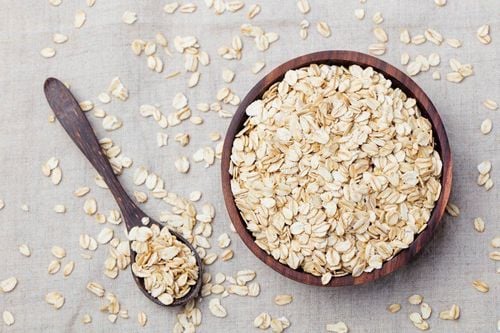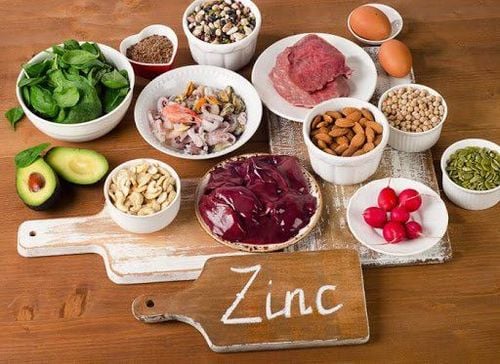Many children fail to gain weight adequately despite a proper diet, or have poor weight gain. This often causes parents or caregivers to feel extremely anxious and constantly search for solutions. However, if equipped with basic knowledge about why children do not gain weight and how to care for and feed them scientifically, their weight can improve promptly.
1. Reasons why children eat but do not gain weight
There are various reasons that can cause a child not to gain weight for several months, even though they still eat well to maintain healthy growth, including:
Insufficient calories intake
In 90% of cases, children cannot develop fully if they do not get enough calories. This can occur when children do not ask to be fed frequently or when parents do not care for their child enough and do not understand how many calories their child actually needs.
Restricted diet
A 2-year-old child not gaining weight can be due to not being offered a diverse and varied diet, which can lead to boredom with and disinterest in food. At this age, the child's primary teeth are relatively well-developed, and their brain's curiosity for exploration is constantly active. Continuous meals of the same type of food, such as when the child first started eating solids, will be unsuitable for them.
Dental issues
One reason a child may not gain weight for several months could be due to the teething process. The pain from the eruption of primary teeth makes the child irritable, drool continuously and eat poorly.
Furthermore, when children develop blisters or mouth ulcers, these lesions can make them more sensitive when being fed.
Vomiting
This digestive disorder often affects the child's ability to absorb nutrients. Furthermore, the child may also vomit food due to being forced to eat too much.
Additionally, vomiting in children can be caused by severe acid reflux or certain neurological problems which leads to decreased muscle tone.
Pancreatic issues
Children eat well but not gain weight due to improper digestion of food when the pancreas is functioning poorly. In these cases, the child may present with diarrhea characterized by loose, frothy stools that are foul-smelling and contain excessive mucus.
Congenital heart diseases
For children with congenital heart diseases, eating is also a physical exertion. As a result, poor appetite, eating little, or not enjoying food can lead to the child not gaining weight for many months.

2. Solutions to help the child gain weight healthily
Here are some simple solutions that parents can apply at home to help their child gain weight more effectively:
Create a comfortable atmosphere for the children to eat
Most children are often distracted by the TV, smartphones, or computers while being fed. When there are numerous distractions, adults may feel pressured to make sure that the child eats enough. Sometimes, children may refuse to eat in these situations.
Therefore, it is advisable to eliminate distracting factors during mealtime to make a relaxing atmosphere, helping both the adult and the child focus more effectively.
Establish a consistent mealtime habit.
Maintaining a habit is essential for children to develop regular eating behaviors each day.
When children reach the age of 2, parents can guide them to follow the time, and feeding them at scheduled times will help them gain weight more quickly. Initially, mealtimes may interrupt playtime, which can be frustrating for the child, but consistently doing this every day will help them create a habit.
Besides, do not skip meals for the child, even when going out. At such times, it is crucial to bring snacks along so that parents can feed the child according to the established schedule.
Increase calorie intake
Some children eat very small amounts of food at each meal. As a result, increasing the quantity of food seems ineffective so that parents should choose high-calorie foods to quickly improve the child's lack of weight gain over several months.
This will ensure that a 2-year-old receives the appropriate nutrition. These foods include full-fat dairy products, cream cheese, mayonnaise, or milk-based puddings.
Consider choosing snacks
Snacks are also an important source of energy in the daily diet of toddlers. Easy-to-handle snacks are a favorite among children.
However, parents should be careful to select these snacks because they often contain high levels of salt, synthetic chemicals, or saturated fats. To gain weight safely in young children, it is advisable to prepare healthy homemade snacks such as baked muffins, peanut butter cookies, and cereal bars. Oatmeal can also be a healthy option for snacks for children. On the other hand, parents can provide their children with juice except soft drinks.
Consider supplementing vitamins for children.
Parents can consult pediatricians or nutrition experts about supplementing certain micronutrients to improve the weight of underweight children, especially if the child has a poor appetite. Multivitamin supplements for children should include vitamins A, C, and D and must be formulated appropriately for their age.
3. Foods rich in energy can help children gain weight more quickly.
Food plays a main role in nourishing and gaining weight in young children. Therefore, if a child eats well but is not gaining weight, parents should consider add these types of foods into the child's diet to help them gain weight in a healthy way:
Potatoes
Most children enjoy eating potatoes. This is also a good option to help promote weight gain in young children. The carbohydrate in potatoes provides an optimal source for helping children gain weight quickly. Furthermore, potatoes also contain amino acids which stimulate growth in children. In addition to potatoes, parents can also choose other starch-rich sources to add in their child's meal.

Olive oil
Everyone has been aware of the benefits of consuming olive oil. This product is very rich in monounsaturated fatty acids, making it a healthy dietary supplement to the daily diet.
Furthermore, olive oil is also high in antioxidants and contains many calories. Adding olive oil to children's salads and in other healthy recipes is also a suitable way to increase calorie intake.
Bananas
Bananas are also top the list of healthy foods for weight gain. Ripe bananas are readily available and can be eaten immediately without any preparation.
Bananas are also a rich source of carbohydrates, making it easier and more effective for children to gain weight. Parents simply need to peel a banana and cut it into bite-sized pieces for their children. Another way to make bananas more attractive to children is to add yogurt or custard, mix with some other fruits, or serve them as banana pudding.
Nuts
Nuts are also often favored by children, such as almonds, walnuts, cashews, peanuts, pumpkin seeds, and sesame seeds. They are a rich source of healthy fats, protein, and fiber.
Therefore, parents can add these nuts in their children's daily diet. However, it is advisable not to give children whole nuts to avoid the risk of choking; instead, they can be made into nut butter, grounded for baking, or blended into milk.
Eggs
Eggs are always an ideal source of natural protein and are rich in vitamin A and vitamin B12. This food can be used as soon as children start eating solid foods.
By the time children reach 2 years old, they will enjoy eating eggs prepared in various attractive ways, from scrambled eggs, boiled eggs, and omelets, even egg in cake and milkshake.
Avocados
Avocados are fantastic sources of healthy plant-based fats. They are rich in calories, carbohydrates, protein, and fats… which are essential components that support weight gain.
Moreover, there are numerous ways to eat avocados, including eating fresh, eating with salads, or blending into smoothies and baking… All of them keep children enthusiastic about each delicious recipe.
In summary, parents should regularly weigh and measure their children at home to detect any lack of weight gain over several months, allowing for timely adjustments. The children's diet is always a crucial factor, even if they are eating well but not gaining weight. Therefore, providing a diet which is rich in protein and carbohydrates, along with high-calorie fruits like bananas and avocados can help the children gain weight quickly and keep pace with their peers.
If a child does not gain weight for several months, parents should provide them with supplementary products containing lysine, essential minerals, and vitamins such as zinc, chromium, selenium, and B vitamins to reach their nutritional needs. These essential vitamins also support digestion, enhance nutrient absorption, and help improve appetite, making meals more enjoyable for the children.













